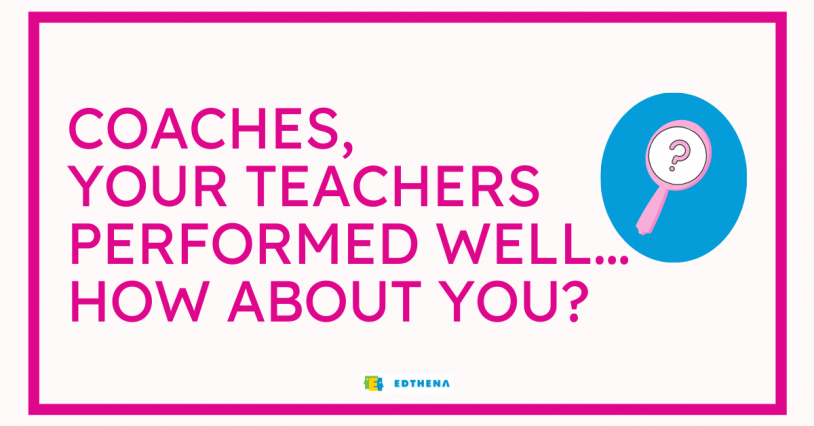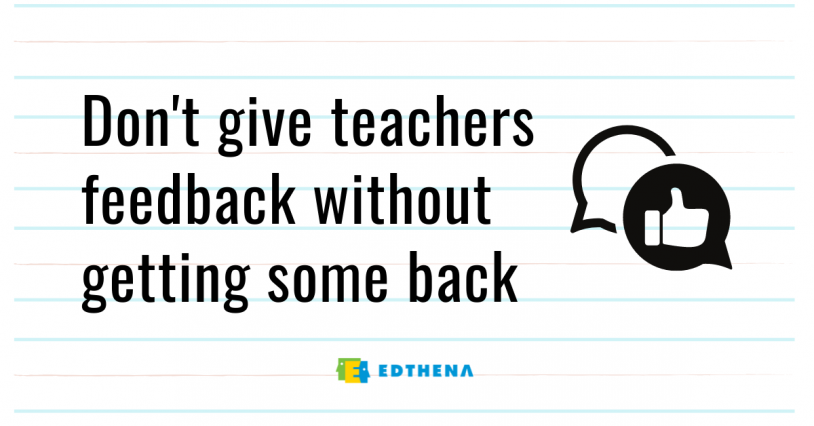Hey Teacher Coach, Your Teachers Succeeded This Year… Did You?

As a teacher coach, you may not have final grades to input or last-day-of-school classroom parties to plan. But that doesn’t mean the end of the year can’t include some close-out activities.
Don’t miss out on a crucial opportunity to fine-tune your work during this time.
While teachers reflect on their growth over the past school year, make sure you, too, are reflecting on your coaching. Looking back at how you succeeded or fell short in your coaching relationships is an important way to wrap up the year and identify how you want to move forward in your role.
Read on as we outline the what’s, why’s, and how’s of conducting an end-of-year reflection for a teacher coach. Hint: just like your role, it’s all about feedback!
3 questions to ask your teachers
Coaching is a two-way street, and now is a valuable time to draw on the teachers you’ve coached the past year for help with your own reflection.
You know all that feedback you’ve been giving them? Ask for some back!
Here are three questions to ask your teachers to zoom in on your coaching strengths and areas for improvement:
- Question 1. In what ways was our partnership most effective?
- Question 2. In what ways could our partnership have been different?
- Question 3. What is your biggest piece of feedback for me?
This can be done in writing or verbally. If your teachers are comfortable with you and the relationship you’ve built, they’ll have no problem sharing their feedback.
Don’t ask your teachers to do something if you won’t do it, too
Why ask for feedback from those who you support? As a teacher coach, you know firsthand how your feedback fosters improvement. 
The same works in your direction, too!
Students have test scores as feedback from teachers, and educators have feedback from you, but how does an instructional coach know how they’ve done in their role? Gathering honest responses about how others felt during your coaching and its perceived effectiveness will help you see how your intended coaching moves landed.
Moreover, it will build stronger relationships– when teachers see that you value their opinions and reflections, they’ll be even more invested in yours.
Feedback on your coaching will also help you improve in your role as a teacher coach. Just as students benefit from feedback from their teachers, and teachers get better through your observations of them, so you will grow from doing this at the end of the year (and ideally, various times throughout the school year). Better teachers start with better coaches.
I got feedback … now what?
After gathering feedback from the teachers you coached this year, here’s what to do next:
- Look for trends in the data. As you listen to what your coachees have to say about your work as a teacher coach, notice any patterns that emerge. Is more than one person saying the same thing?
- Ask yourself the tough questions. Did the responses match what you expected? What is at the root of your strengths or areas of growth? Be honest.
- Create a plan. Reflect on how you achieved the strengths identified, and what to continue doing, and be honest about the shortcomings named, and what you will change in your practice to address them.
The role of a teacher coach is valuable to teachers and, ultimately, students. To be better at supporting others, you owe it to them and yourself to spend time reflecting on your practice.
If you’re an educator, check out our guide to teacher end-of-year reflections.

